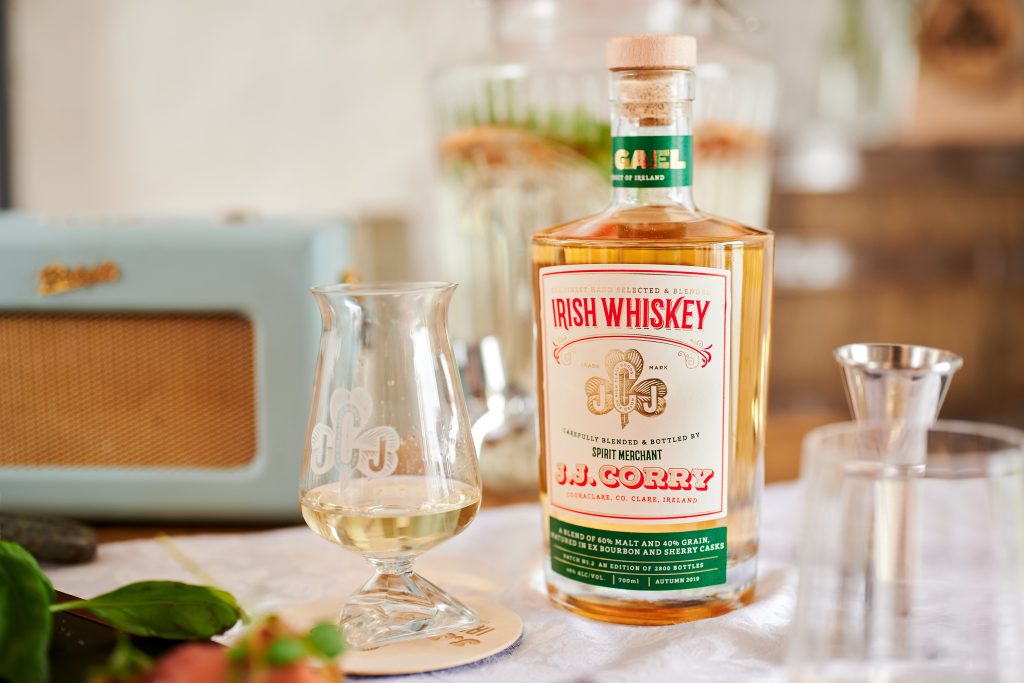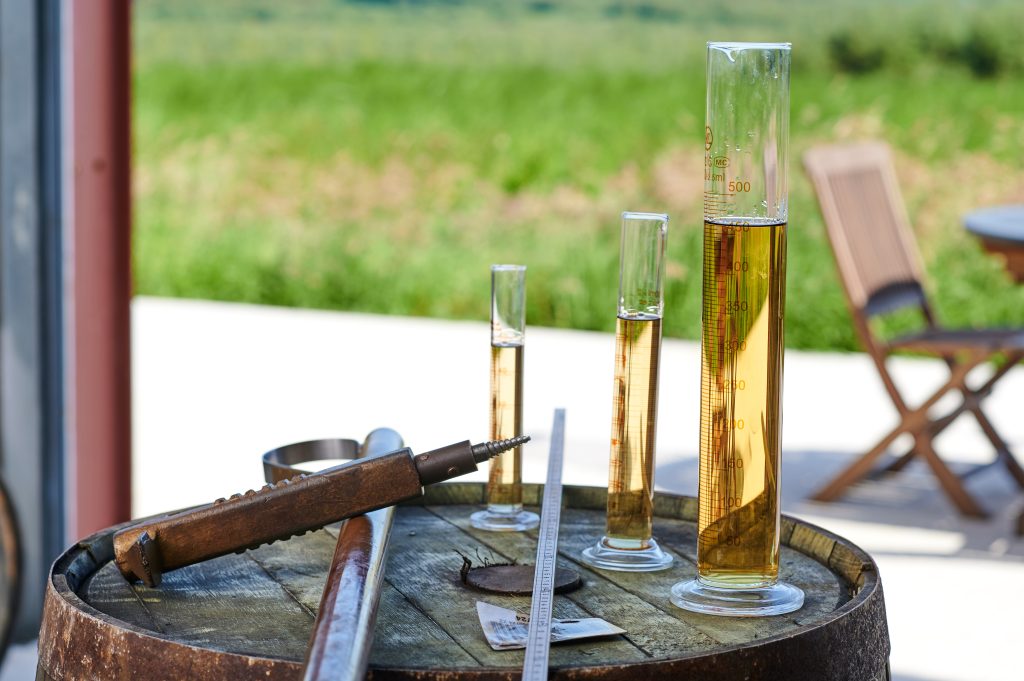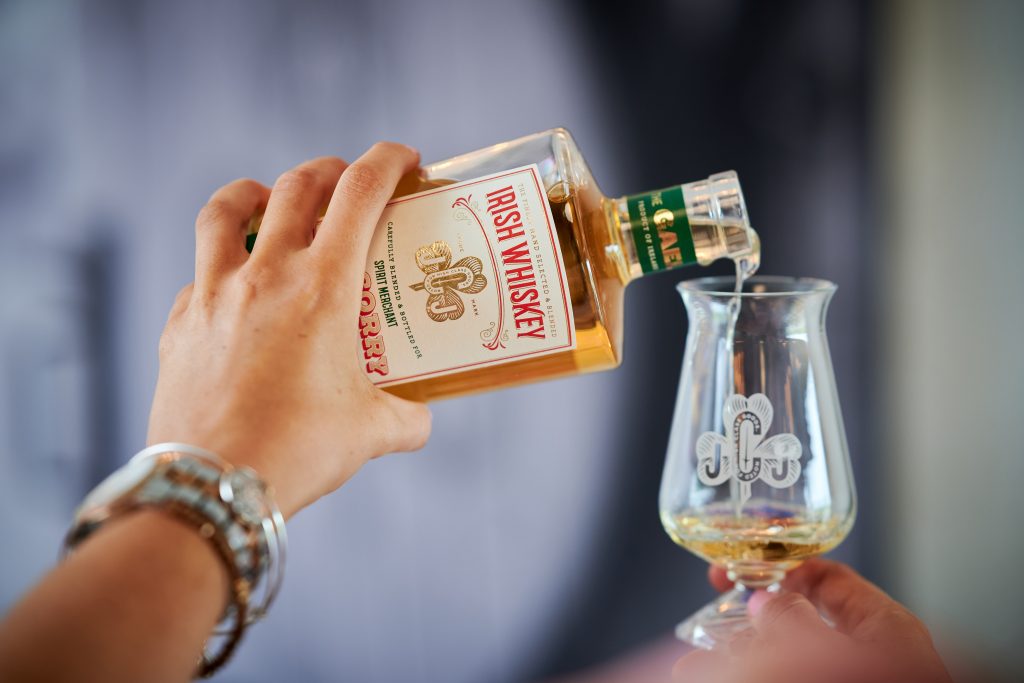Interview: Louise McGuane, Founder of J.J. Corry Irish Whiskey
Founded in 2015, this premium liquor brand is set on reviving the art of Irish whiskey bonding

Prior to the onset of today’s expansive international interest in Irish whiskey, entrepreneur Louise McGuane wanted to elevate the category and revive the historic process of bonding—where a proprietor buys spirit, then blends, matures, bottles and sells it. In 2015, McGuane, a spirits-industry veteran, founded J.J. Corry Irish Whiskey to usher that tradition into the present day and infuse it with values she observed in the craft spirits movement taking place in the US. From the moment she debuted J.J. Corry, McGuane was hyper-transparent about what she does and how she does it. Today, the resulting bright, flavorful and complex Irish whiskeys under the J.J. Corry brand name are both award-winning and delicious.

“We do what we do to delight people,” McGuane tells COOL HUNTING. “I had a global career in the drinks industry. I worked in New York, Paris, London and Singapore for a big multinational business, even though I was born in Ireland. In 2015, I was very attune to what was going on in the industry. The craft spirits movement had begun in earnest in the US. America had all these amazing craft distilleries opening up and there was a desire for smaller production and for authentic stories rather than mass market. It hadn’t happened in Irish whiskey; the category was still just Jameson.”

“I could tell that craft distillation would reach Ireland and I knew that Jameson had done a good job of opening the category up to people and making Irish whiskey relevant,” McGuane continues, “so I felt like there was a window of opportunity for me to enter the industry with a fresh viewpoint. I quit my job and decided that’s what I would do.”
McGuane, who is described as Ireland’s first modern whiskey bonder, sought to blend the past and present. “The word ‘modern’ is quite important to what I do,” she explains. “I emphasize that. Irish whiskey has this really interesting history. It was huge for several hundreds of years. It was bigger than scotch. It was bigger than anything else. But over a 50 year period, the entire industry collapsed—between the late 1800s and early 1930s. When I say collapsed, I mean the whole thing almost disappeared.”

Whiskey bonders were part of the vital, thriving Irish whiskey industry at its peak. “They were unique to Ireland,” she continues. “It was a really small-scale form of independent bottling, blending and maturing. If you were a very wealthy family in a local town in the 1800s you would have had your own housekeepers blend and J.J. Corry would have made that for you. Once a week, you would come down, J.J. Corry would blend that. It would be exclusive to you.”

“That’s the core concept of it,” McGuane says, “and it’s really ingrained in the core history of Irish whiskey and Ireland altogether. I wanted to take that idea and bring it into modern parlance. We do exactly what the old bonders did but a bit more carefully. There are nuances now. I interpret it by filtering that tradition through a global outlook.” While the figurative J.J. Corry of the past would have matured whiskey in rum casks, because that was what was available, McGuane’s brand meticulously sources barrels. And that’s just one layer.

McGuane blends, matures and bottles on site at J.J. Corry’s headquarters on her family’s farm in Cooraclare, Ireland. “If you are extremely focused on everything after distillation, you can still create complex whiskeys,” she says. Her craft has developed since the brand’s launch, as new distilleries have continued to emerge. “When I started, there was literally Midleton [Jameson’s distillery], Bushmills and Cooley. It would have been very boring if I were just blending those three all the time, forever. That’s not very interesting.”

There are now about 30 distilleries in Ireland. “A lot of them are tiny and make only two casks a weeks,” McGuane says. “I source from the big distilleries, of course, because I am building a global brand and I need lots of whiskey, but my job is to build relationships on the island of Ireland with small, independent producers. What’s going to make my whiskey interesting is having the most comprehensive library of spirit maturing.”

J.J. Corry debuted with The Gael, their delectable flagship whiskey, which is blended in batches that are released annually. The first batch was only 3,000 bottles. Today, production may have doubled but it’s still small-batch and sought after. They brand has since released The Hanson, as well, which has been designed for Irish whiskey cocktails. In addition, the brand does specialty bonding that nods to the category’s history. For example, Annabel’s in London has their own J.J. Corry’s bonders blend.

“The Gael was the first whiskey that we ever, ever released,” McGuane says, “but it’s now consistent in the range. That was the point of it, to show people that you can achieve really great things by blending—interesting, complex and layered whiskeys by blending—and make virtue of the fact that we are blenders. We don’t distill. We never will.”

Right now, McGuane is planning what the brand will look like over the next ten years, and that means defining the recipe of their flagship product. “It’s not formulaic; it’s flavor driven,” she says. “We know that when we make The Gael, it’s a big fruit bomb of an Irish whiskey. It has notes of green apple, a little bit of green tea, and big mango and white stone fruit.” To continue to achieve this, McGuane organizes her casks into flavor blocks to chart how they’re maturing, and then she manipulates certain flavors to accommodate the recipe. “That’s the art of what we do,” she concludes. “People are noticing Irish whiskey in a different way and we’re part of that.” J.J. Corry’s reputation will continue to develop, but their influence is already felt—and The Gael is already a product worthy of any at-home bar.
Hero image by John Kelly












